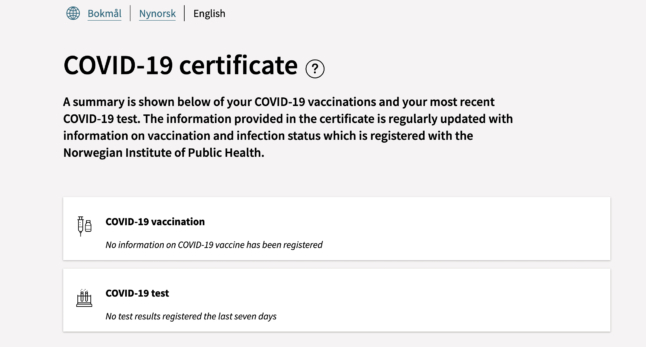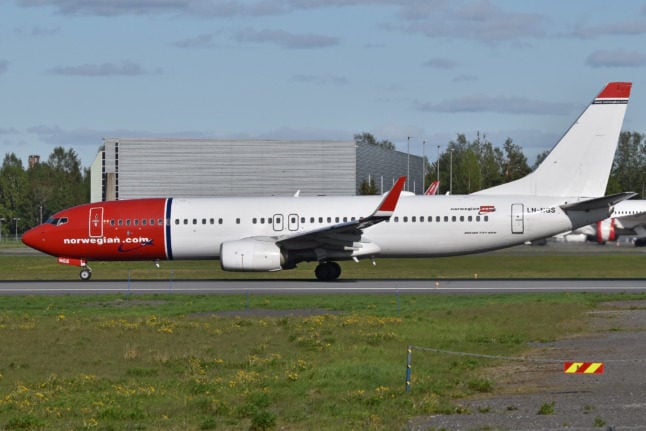Anyone who has received their first coronavirus jab in Norway, at least three weeks before their arrival, and those who have recovered from Covid-19 in the country in the last six months will not be forced into quarantine hotels when they arrive in Norway.
These travellers will still have to spend time in quarantine, but they can do it at their home address or the address they provide Norwegian authorities.
Health Minister Bent Høie made the announcement at a government press conference on Wednesday afternoon.
Travellers arriving in Norway who were vaccinated in foreign countries will still have to enter quarantine hotels.
READ MORE: ‘My arguments didn’t matter’: How I ended up in hotel quarantine in Norway
Health Minister, Høie, said that the government was working on a system whereby Norwegian citizens vaccinated abroad would also no longer have to quarantine in a hotel.
“We are working on a system where Norwegians who have been vaccinated abroad can have their status registered in Norway,” Høie said at the press conference.
It was not clear when Norway would have in a system in place for foreigners vaccinated abroad to be able to skip hotel quarantine, however it will likely be linked to the launch of the EU’s vaccine passport in July.
READ MORE: What’s the latest on how the EU’s ‘Covid passports’ will work for travellers?
The health minister also could not offer any concrete details on whether those who are vaccinated would be able to enter the country without having to quarantine at all in the future – even at home, but he hinted that it could happen.
“The Norwegian Directorate of Health and Norwegian Institute of Public Health have recommended that it is too early to lift the entry quarantine for vaccinated people. There may be changes, and it could happen relatively quickly,” Høie said at the conference.
Children will not be included in the scheme, meaning vaccinated adults with children not old enough to stay on their own will have to remain in the hotels, VG have reported.
The new regulations come into effect on Thursday, June 3rd.
The changes also mean those travellers who fit the above criteria who are already in quarantine hotels, will be able to leave and continue the quarantine period at home.
Travellers who have recovered from Covid will have to prove it digitally via the preliminary corona certificate on helsenorge.no, state broadcaster NRK reported.

Høie said he understood the frustrations of vaccinated travellers that have been placed into hotels thus far but argued that it has been necessary.
“It has been necessary to ensure that those who say they have been vaccinated have been,” he said.
The scheme will be in place until Norway’s full “coronavirus certificate” is released on June 11th.
“Many are excited about how the corona certificate will look and what we can use it for,” Høie said.
Høie also added that the full certificate would grant access to large events in Norway over the summer.
The full certificate will use verifiable QR codes and will glow green when scanned if you are vaccinated or received a recent negative coronavirus test.



 Please whitelist us to continue reading.
Please whitelist us to continue reading.
Member comments